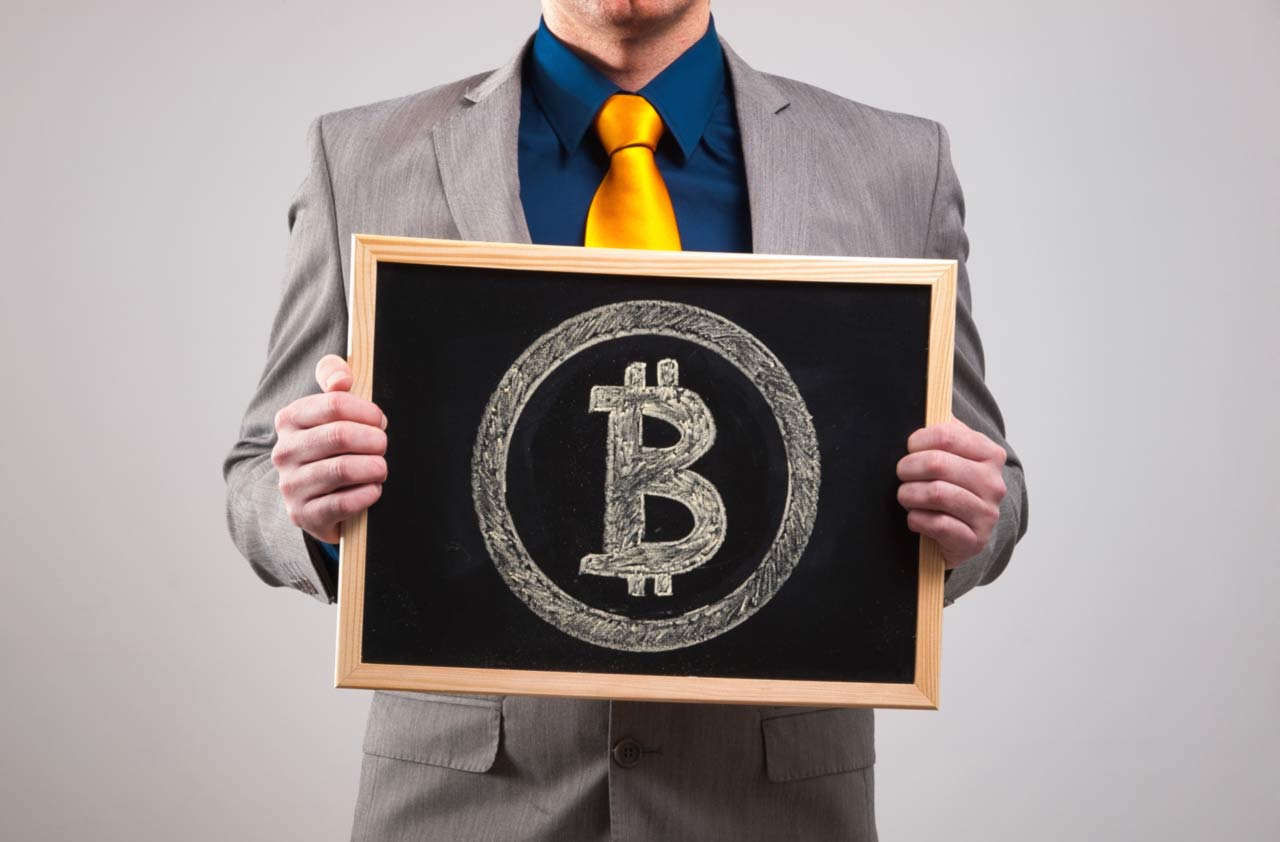The Bitcoin IRA: 5 Essential Facts You Need to Know
When you think IRA investments, you're probably not thinking bitcoin. With a self-directed IRA, investing in the skyrocketing currency could be an option. But should you go for it?


Profit and prosper with the best of Kiplinger's advice on investing, taxes, retirement, personal finance and much more. Delivered daily. Enter your email in the box and click Sign Me Up.
You are now subscribed
Your newsletter sign-up was successful
Want to add more newsletters?

Delivered daily
Kiplinger Today
Profit and prosper with the best of Kiplinger's advice on investing, taxes, retirement, personal finance and much more delivered daily. Smart money moves start here.

Sent five days a week
Kiplinger A Step Ahead
Get practical help to make better financial decisions in your everyday life, from spending to savings on top deals.

Delivered daily
Kiplinger Closing Bell
Get today's biggest financial and investing headlines delivered to your inbox every day the U.S. stock market is open.

Sent twice a week
Kiplinger Adviser Intel
Financial pros across the country share best practices and fresh tactics to preserve and grow your wealth.

Delivered weekly
Kiplinger Tax Tips
Trim your federal and state tax bills with practical tax-planning and tax-cutting strategies.

Sent twice a week
Kiplinger Retirement Tips
Your twice-a-week guide to planning and enjoying a financially secure and richly rewarding retirement

Sent bimonthly.
Kiplinger Adviser Angle
Insights for advisers, wealth managers and other financial professionals.

Sent twice a week
Kiplinger Investing Weekly
Your twice-a-week roundup of promising stocks, funds, companies and industries you should consider, ones you should avoid, and why.

Sent weekly for six weeks
Kiplinger Invest for Retirement
Your step-by-step six-part series on how to invest for retirement, from devising a successful strategy to exactly which investments to choose.
You can’t escape the hype. It seems that everywhere you turn, people are talking about bitcoin. But few people understand what bitcoin is and how it works.
Bitcoin is a peer-to-peer system where transactions typically take place directly between users. It works without a single or central administrator, unlike the U.S. dollar, which is produced and managed entirely by the U.S. Treasury and the Federal Reserve. Bitcoins can be exchanged for services, products and various currencies. As we have seen in recent years, the currency can also be used for investment purposes.
One method of investing in bitcoin that has been increasing in popularity is the use of an individual retirement account (IRA). Is this legal? How is the account established?
From just $107.88 $24.99 for Kiplinger Personal Finance
Become a smarter, better informed investor. Subscribe from just $107.88 $24.99, plus get up to 4 Special Issues

Sign up for Kiplinger’s Free Newsletters
Profit and prosper with the best of expert advice on investing, taxes, retirement, personal finance and more - straight to your e-mail.
Profit and prosper with the best of expert advice - straight to your e-mail.
Investments made using traditional IRAs are typically handled solely by the financial institution with which the IRA is established. The self-directed IRA (SDIRA), however, allows investors to purchase any asset permitted by law. It is capable of holding both conventional assets (stocks and bonds) and alternatives, such as gold and bitcoin.
That said, there is technically no such thing as a bitcoin IRA. There is only the SDIRA that can be used for investing in the so-called cryptocurrency. If you’re considering this option, here are some essential facts to consider.
1. The Self-Directed IRA landscape is evolving.
SDIRAs are flexible, allowing for diverse investments. As many investors are getting bored with traditional investments, such as stocks and mutual funds, more investment variety is being introduced to the market. This evolution of the SDIRA landscape includes the introduction and growing popularity of the idea of investing in bitcoin.
2. Bitcoin has increased in value.
Bitcoin valuations have skyrocketed. The usage of bitcoin has grown, as well, with over 100,000 vendors currently accepting bitcoins as a form of payment. Since a single bitcoin has gone from being valued at 8 cents in 2010 to well over $6,000 today, it makes sense that it is being used more and more as a form of investment. But beware, as a correction could come at any time.
3. The viability of bitcoin IRA investments is questionable.
While it is known that bitcoin values have increased beyond any early predictions, it is unknown how much longer these increases will continue. In fact, should you be looking to invest your IRA in bitcoin, it would be wise to keep it a very small amount of your entire portfolio. It is still very speculative. Make sure to consult with your financial adviser on your portfolio allocation.
4. The legality of bitcoin is currently being debated worldwide.
Some countries, such as Australia and Canada, explicitly permit bitcoins and bitcoin transactions, while others, including Iceland, have strictly prohibited the cryptocurrency. China has allowed the holding and trading of bitcoins but banned the participation of its financial institutions in these activities. Some countries, such as Australia and Canada, explicitly permit bitcoins and bitcoin transactions, while others, have strictly prohibited the cryptocurrency. China has recently banned bitcoin trading, which forced many bitcoin operators to shut down or move their servers offshore.
Bitcoin has been permitted in the United States. However, debate is ongoing, such as whether or not any restrictions should be placed on the cryptocurrency. The IRS in 2014 published guidance stating that it “does not approve IRA investments,” but the agency doesn’t explicitly prohibit them either, which brings us to our next fact.
5. The IRS does not prohibit IRA investments into Bitcoins.
Regarding legality in the United States, investors can find comfort in the lack of specific legal restrictions. Currently, the Internal Revenue Service only prohibits IRA investments in life insurance and collectibles such as stamps, artwork, metals, coins, etc. This stipulation means that you are technically allowed to use your SDIRA to invest in bitcoin, as it is not specifically named in either of the prohibited investment categories.
The legality, stability and investment potential of bitcoin have all been intensely debated — often without clear answers or solutions. In the end, it is up to you to decide what to invest in using your SDIRA.
If you plan to invest in bitcoin using an SDIRA, make sure you do so through a self-directed custodian that does not restrict your investments solely to cryptocurrencies. This way, you can use your SDIRA to act on any significant investment that comes your way.
But be cautious. Bitcoin is very speculative and only should be invested in with careful consideration.
Profit and prosper with the best of Kiplinger's advice on investing, taxes, retirement, personal finance and much more. Delivered daily. Enter your email in the box and click Sign Me Up.

Paul Sundin is a CPA and tax strategist. With a worldwide client base, he specializes in tax planning and tax structuring for individuals, entrepreneurs and the real estate industry. In addition to being a CPA, he is also an author, speaker and consultant. His professional mission is to educate taxpayers on tax strategies and personal finance.
-
 5 Vince Lombardi Quotes Retirees Should Live By
5 Vince Lombardi Quotes Retirees Should Live ByThe iconic football coach's philosophy can help retirees win at the game of life.
-
 The $200,000 Olympic 'Pension' is a Retirement Game-Changer for Team USA
The $200,000 Olympic 'Pension' is a Retirement Game-Changer for Team USAThe donation by financier Ross Stevens is meant to be a "retirement program" for Team USA Olympic and Paralympic athletes.
-
 10 Cheapest Places to Live in Colorado
10 Cheapest Places to Live in ColoradoProperty Tax Looking for a cozy cabin near the slopes? These Colorado counties combine reasonable house prices with the state's lowest property tax bills.
-
 Don't Bury Your Kids in Taxes: How to Position Your Investments to Help Create More Wealth for Them
Don't Bury Your Kids in Taxes: How to Position Your Investments to Help Create More Wealth for ThemTo minimize your heirs' tax burden, focus on aligning your investment account types and assets with your estate plan, and pay attention to the impact of RMDs.
-
 Are You 'Too Old' to Benefit From an Annuity?
Are You 'Too Old' to Benefit From an Annuity?Probably not, even if you're in your 70s or 80s, but it depends on your circumstances and the kind of annuity you're considering.
-
 In Your 50s and Seeing Retirement in the Distance? What You Do Now Can Make a Significant Impact
In Your 50s and Seeing Retirement in the Distance? What You Do Now Can Make a Significant ImpactThis is the perfect time to assess whether your retirement planning is on track and determine what steps you need to take if it's not.
-
 Your Retirement Isn't Set in Stone, But It Can Be a Work of Art
Your Retirement Isn't Set in Stone, But It Can Be a Work of ArtSetting and forgetting your retirement plan will make it hard to cope with life's challenges. Instead, consider redrawing and refining your plan as you go.
-
 The Bear Market Protocol: 3 Strategies to Consider in a Down Market
The Bear Market Protocol: 3 Strategies to Consider in a Down MarketThe Bear Market Protocol: 3 Strategies for a Down Market From buying the dip to strategic Roth conversions, there are several ways to use a bear market to your advantage — once you get over the fear factor.
-
 For the 2% Club, the Guardrails Approach and the 4% Rule Do Not Work: Here's What Works Instead
For the 2% Club, the Guardrails Approach and the 4% Rule Do Not Work: Here's What Works InsteadFor retirees with a pension, traditional withdrawal rules could be too restrictive. You need a tailored income plan that is much more flexible and realistic.
-
 Retiring Next Year? Now Is the Time to Start Designing What Your Retirement Will Look Like
Retiring Next Year? Now Is the Time to Start Designing What Your Retirement Will Look LikeThis is when you should be shifting your focus from growing your portfolio to designing an income and tax strategy that aligns your resources with your purpose.
-
 I'm a Financial Planner: This Layered Approach for Your Retirement Money Can Help Lower Your Stress
I'm a Financial Planner: This Layered Approach for Your Retirement Money Can Help Lower Your StressTo be confident about retirement, consider building a safety net by dividing assets into distinct layers and establishing a regular review process. Here's how.